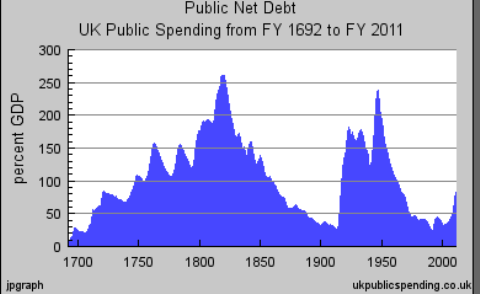This is a wide-ranging piece that winds up to a rather blunt assessment that a reason our national debt might become a problem is because American elected officials cannot be trusted. (What interest rates would you charge to lend to crazy people who have religious objections to raising revenue to repay the debt?)
The four paragraph rule is problematic here. I selected the four grafs that best contain the line of thought, but it's best to read the whole thing at the link.
March 5, 2010, 11:23 am
Debt Is A Political Issue
And if you do the arithmetic of debt service, that really does seem to suggest that debt isn’t a problem. To stabilize the real value of debt, all the government has to do is pay the real interest on it. So suppose that we add debt equal to 100 percent of GDP, which is much more than currently projected; servicing that debt should cost only 1.4 percent of GDP, or 7 percent of federal spending. Why should that be intolerable?
And even that, you could argue, is too pessimistic. To stabilize the debt/GDP ratio, all you need is to pay r-g, where r is the real interest rate and g the economy’s real growth rate; and right now r-g looks, ahem, negative.
...
So what’s the problem? Confidence. If bond investors start to lose confidence in a country’s eventual willingness to run even the small primary surpluses needed to service a large debt, they’ll demand higher rates, which requires much larger primary surpluses, and you can go into a death spiral.
So what determines confidence? The actual level of debt has some influence — but it’s not as if there’s a red line, where you cross 90 or 100 percent of GDP and kablooie; see the chart above. Instead, it has a lot to do with the perceived responsibility of the political elite.
http://krugman.blogs.nytimes.com/2010/03/05/debt-is-a-political-issue/